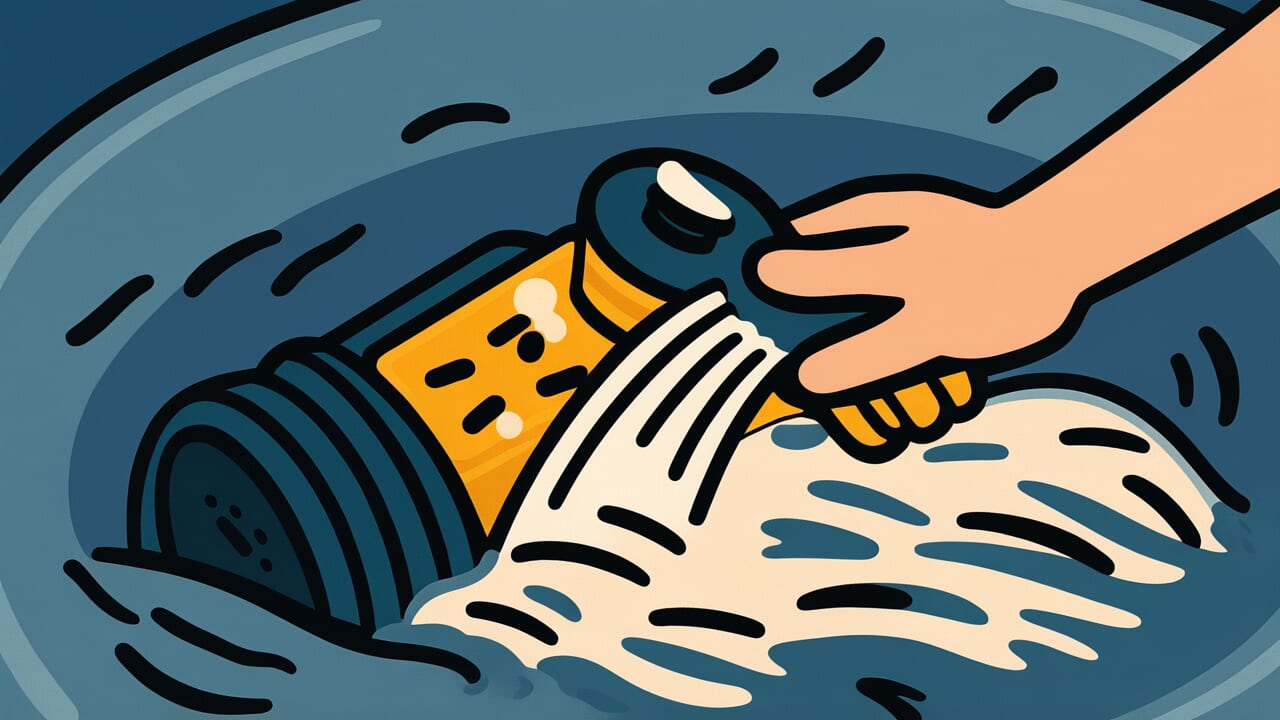How to Read “Washing away one’s body for the sharpening fee”
Togichin ni mi wo nagasu
Meaning of “Washing away one’s body for the sharpening fee”
“Washing away one’s body for the sharpening fee” is a metaphor for ruining yourself while chasing small rewards. It describes situations where people become blinded by tiny profits or rewards.
They pursue these small gains so desperately that they end up suffering major losses or making irreversible mistakes.
This proverb serves as a warning to people who fixate on immediate small gains. They lose sight of their original purpose and what truly matters.
The saying cautions against foolishness. People destroy themselves by losing trust, breaking relationships, or even breaking laws for small amounts of money or trivial benefits.
This lesson remains relevant today. People still commit fraud for small gains or sacrifice their precious time and health for minor rewards.
The proverb reminds us not to lose balance between immediate profits and long-term value. It helps us keep ourselves in check.
Origin and Etymology
The exact source of this proverb is unclear. However, its structure suggests it comes from the craftsman culture of the Edo period.
“Togichin” means the fee paid for sharpening blades. During the Edo period, blade sharpening was essential to everyday life.
But the payment was never high. Craftsmen who sharpened kitchen knives and scissors went door to door for work. The money they earned from each job was very small.
“Mi wo nagasu” means to ruin oneself or face destruction. It evokes the image of being swept away by a river and disappearing forever. This phrase describes an irreversible state.
The proverb expresses an ironic situation. People chase small rewards like a meager sharpening fee. But this pursuit leads to major losses and ultimately self-destruction.
It uses the world of craftsmen as an example. The saying warns against human foolishness—becoming blinded by immediate small profits and losing what should be protected.
The choice of an occupation close to common people’s lives reflects the historical background. This shows when and where the proverb was born.
Usage Examples
- Pushing yourself too hard with side jobs and ruining your health is like washing away one’s body for the sharpening fee
- Getting tricked into helping with fraud while trying to earn pocket money—that’s truly washing away one’s body for the sharpening fee
Universal Wisdom
“Washing away one’s body for the sharpening fee” reveals a universal truth. It shows how easily human judgment becomes clouded by immediate benefits.
Humans should be capable of rational behavior. But when small profits appear before our eyes, we become blind to the major risks ahead.
This relates to how our brains work. Small rewards we can obtain with certainty appeal to our hearts more strongly than uncertain future losses, even if those losses are large.
This proverb has been passed down through generations for a reason. People who repeat this mistake have existed throughout all eras.
Some lose trust for small amounts of money. Others destroy important relationships for trivial gains. Still others throw away their lives for minor desires. The forms change, but the essence remains the same.
What’s interesting is that this proverb uses a concrete, familiar example—the sharpening fee. It doesn’t teach through lofty theory.
Instead, it warns that small temptations in daily life are the real danger. Perhaps modest desires destroy people more than grand ambitions do.
Our ancestors understood human weakness deeply.
When AI Hears This
The phenomenon where a small fee paid for sharpening leads to self-destruction is exactly the “entropy trap” shown by the second law of thermodynamics.
This law states that in a closed system, disorder always increases. It never returns to its original state. This is a one-way process.
The asymmetry between initial input energy and final collapse deserves attention. For example, ice crystals have beautiful ordered structures.
But add just a little heat and they become water. That order never naturally returns. A small financial loss like a sharpening fee works the same way.
It triggers a chain reaction that collapses the entire life system. Debt leads to more debt. Trust is lost. Options narrow.
Restoring the “life order” lost in this process requires tens or hundreds of times more effort than the initially lost energy.
In physics, stopping entropy increase requires continuous energy input from outside. Life is the same.
At the stage of small losses, you must seek external support or open the system to bring in new resources. In a closed state, the system automatically progresses toward collapse.
This isn’t a moral issue. It’s an inevitability governed by physical laws.
Lessons for Today
This proverb teaches modern people the importance of developing eyes that can discern true value.
Small temptations surround us everywhere. Point rewards, cashback offers, sweet promises of side income. These aren’t bad in themselves.
But we need to stop and think. Are we sacrificing something more important while chasing these things?
What matters is developing a habit. When you see immediate profit, ask yourself: “What will I lose to gain this?”
Is it time? Is it health? Or is it trust? Cultivate the ability to judge calmly whether you’re giving up great value for small gains.
This proverb also connects to the spirit of “more haste, less speed.” Accumulating small, certain profits is important.
But sometimes you need to look back. Make sure this isn’t becoming an excuse to look away from your real goals.
What truly matters in your life? To avoid losing sight of it, remember these words when small immediate rewards threaten to capture your heart.
Value seen from a long-term perspective is what will truly enrich you.



Comments